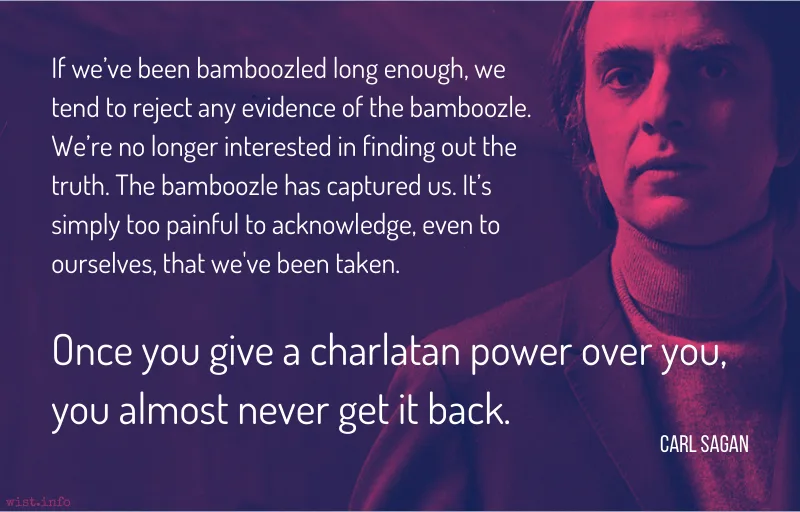One of the great but less famous heroes of World War Two was Andre Trocme, the Protestant pastor of the village of Le Chambon sur Lignon in France, which sheltered and saved the lives of five thousand Jews under the noses of the Gestapo. Forty years later Pierre Sauvage, one of the Jews who was saved, recorded the story of the village in a magnificent documentary film with the title, “Weapons of the Spirit”. The villagers proved that civil disobedience and passive resistance could be effective weapons, even against Hitler. Their religion gave them the courage and the discipline to stand firm. Progress in religion means that, as time goes on, religion more and more takes the side of the victims against the oppressors.
Freeman Dyson (1923-2020) English-American theoretical physicist, mathematician, futurist
“Progress in Religion,” Templeton Prize acceptance speech, Washington National Cathedral (9 May 2000)
(Source)
Quotations about:
victim
Note not all quotations have been tagged, so Search may find additional quotes on this topic.
If you forget the victims
of yesterday’s sorrow
you could become
a victim of tomorrow.Yevgeny Yevtushenko (1933-2017) Russian poet, writer, film director, academic [Евге́ний Евтуше́нко, Evgenij Evtušenko]
“Fuku,” Almost at the End (1987) [tr. Bouis]
(Source)
First printed, in Russian, in Novyi mir, No. 9 (1985). In "Yevtushenko: A Soviet Poet Turns to Movie Making," New York Times (2 Feb 1986), Yevtushenko translates it himself as:He who forgets the victims of yesterday, may become the victim of tomorrow.
Fascist politics feeds off the sense of aggrieved victimization caused by loss of hierarchal status. Empires in decline are particularly susceptible to fascist politics because of this sense of loss. It is in the very nature of empire to create hierarchy; empires legitimize their colonial enterprises by the myth of their own exceptionalism. In the course of decline, the population is easily led to a sense of national humiliation that can be mobilized in fascist politics to serve various purposes.
Jason Stanley (b. 1969) American philosopher, epistemologist, academic
How Fascism Works: The Politics of Us and Them, ch. 5 (2018)
(Source)
There are really only two ways to approach life — as victim or as gallant fighter — and you must decide if you want to act or react, deal your own cards or play with a stacked deck. And if you don’t decide which way to play with life, it always plays with you.
Someone who sees himself as a victim will almost never morally evaluate himself or put limits on his own actions. Why should he? He is the victim.
Thomas Friedman (b. 1953) American journalist, columnist, author
From Beirut to Jerusalem, ch. 6 (1989)
(Source)
One of the saddest lessons of history is this: If we’ve been bamboozled long enough, we tend to reject any evidence of the bamboozle. We’re no longer interested in finding out the truth. The bamboozle has captured us. It’s simply too painful to acknowledge, even to ourselves, that we’ve been taken. Once you give a charlatan power over you, you almost never get it back.
Carl Sagan (1934-1996) American scientist and writer
The Demon-Haunted World, ch. 13 (1995)
(Source)
It is the wit,
The policy of sin, to hate those men
We have abus’d.William Davenant (1606-1668) English poet and playwright [a.k.a. William D'Avenant]
The Just Italian, Act 3, sc. 1 [Sciolto] (1630)
(Source)
CLEANTHES: To gossip seems to be a human need;
Our best protection is to pay no heed.
Let’s live in innocence as best we may,
And let the gossipmongers have their say.[Contre la médisance il n’est point de rempart.
À tous les sots caquets n’ayons donc nul égard;
Efforçons-nous de vivre avec toute innocence,
Et laissons aux causeurs une pleine licence.]Molière (1622-1673) French playwright, actor [stage name for Jean-Baptiste Poquelin]
Tartuffe, or the Hypocrite [Le Tartuffe, ou L’Imposteur], Act 1, sc. 1 (1669) [tr. Frame (1967)]
(Source)
(Source (French)). Alternate translations:There's no guarding against Calumny: Let us therefore not mind silly tittle-tattle, and let's endeavour to live innocently our selves, and leave the gossiping part of Mankind to say what they please.
[tr. Clitandre (1672)]There is no protection against slander. Let us, therefore, pay no regard to all this silly tittle-tattle; let us endeavour to live honestly, and leave the gossips to say what they please.
[tr. Van Laun (1876)]There is no safeguard against calumny. Let us, therefore, not mind all that foolish gossip, but only endeavour to lead a virtuous life, and leave full licence to the scandal-mongers.
[tr. Wall (1879)]There is no defence against calumny. So let us not mind foolish tittle-tattle, and let us endeavour to live innocently, and leave the gossips to say what they please.
[tr. Mathew (1890)]There is not any protection against slander. Do not let us pay any attention to foolish gossip, but endeavour to live honestly and leave the scandal-mongers to say what they will.
[tr. Waller (1903)]Against backbiting there is no defence
So let us try to live in innocence,
To silly tattle pay no heed at all,
And leave the gossips free to vent their gall.
[tr. Page (1909)]There is no wall so high it shuts out slander.
So let's not give a thought to silly gossip,
And let us try to live in innocence,
And let the talkers talk just as they please.
[tr. Bishop (1957)]One can't fight slander; it's a losing battle;
Let us instead ignore their tittle-tattle.
Let's strive to live by conscience' clear decrees,
And let the gossips gossip as they please.
[tr. Wilbur (1963)]There is nothing that can hold back gossip.
Let's give no attention to fools who chatter mean things;
Let's try to live in all innocence,
And leave it to other people to say what they will.
[tr. Siniscalchi (c. 1994)]Tongues would still wag, it's what tongues do,
Scandal will find a passage through
No matter how secure a wall
We built against it -- hang them all!
Their talk won't bother us a bit
As long as there's no grounds for it.
Provided we've done nothing wrong
They're free to babble all day long.
[tr. Bolt (2002)]There's no defense against slander.
Let's pay no attention to their cackling;
we'll try to live virtuously and
let busybodies have their way.
[tr. Steiner (2008)]There is no defence against malicious gossip.
Let's just concentrate on living a good and decent life
And let people talk all they please.
[tr. Campbell (2013)]There is no rampart that will hold out against malice.
[Bartlett's]
When the lambs is lost in the mountain, he said. They is cry. Sometime come the mother. Sometime the wolf.
Cormac McCarthy (1933-2023) American novelist, playwright, screenwriter
Blood Meridian, ch. 5 (1985)
(Source)
Oppressed people are frequently very oppressive when first liberated. And why wouldn’t they be? They know best two positions. Somebody’s foot on their neck or their foot on somebody’s neck.
The more you are drawn to put yourself in the place of the other person, the more you feel the pain inflicted upon him, the insult offered him, the injustice of which he is a victim, the more you will be urged to act so that you may prevent the pain, insult, or injustice.
I never yet heard man or woman much abused, that I was not inclined to think the better of them; and to transfer any suspicion or dislike to the person who appeared to take delight in pointing out the defects of a fellow-creature.
Jane Porter (1776-1850) English historical novelist and dramatist
Aphorisms of Sir Philip Sidney, Vol. 2, “Falsehood, Treachery, and Slander,” #19, Remark (1807)
(Source)
Call me a “rube” and a “hick,” but I’d a lot rather be the man who bought the Brooklyn Bridge than the man who sold it.
Suffering cleanses only when it is free of resentment. Wholehearted contempt for our tormentors safeguards our soul from the mutilations of bitterness and hatred.
Eric Hoffer (1902-1983) American writer, philosopher, longshoreman
The Passionate State of Mind, Aphorism 263 (1955)
(Source)
If you don’t have a seat at the table, you’re probably on the menu.
Elizabeth Warren (b. 1949) American academic and politician [née Herring]
Speech, Emily’s List PAC, New York (22 Sep 2014)
(Source)
We are more apt to persecute the unfortunates than the scoundrels; the scoundrels may retaliate.
Paul Eldridge (1888-1982) American educator, novelist, poet
Maxims for a Modern Man, #952 (1965)
(Source)
I swore to never be silent whenever and wherever human beings endure suffering and humiliation. We must always take sides. Neutrality helps the oppressor, never the victim; silence encourages the tormentor, never the tormented.
Elie Wiesel (1928-2016) Romanian-American novelist, professor, political activist, Nobel Laureate.
Speech (1986-12-10), Accepting the Nobel Peace Prize
(Source)
I fear that in this world one must be either hammer or anvil.
Voltaire (1694-1778) French writer [pseud. of Francois-Marie Arouet]
Philosophical Dictionary, “Tyranny” (1764) [tr. Gay (1962)]
(Source)
Alt. trans.: "In this world we run the risk of having to choose between being either the anvil or the hammer." [Baskin (1961)]
ELRIC: As I look at you, Ambassador Mollari, I see a great hand reaching out of the stars. The hand is your hand. And I hear sounds — the sounds of billions of people calling your name.
LONDO: My followers?
ELRIC: Your victims.
It is better to suffer wrong than to do it, and happier to be sometimes cheated than not to trust.
Samuel Johnson (1709-1784) English writer, lexicographer, critic
The Rambler, #79 (18 Dec 1750)
(Source)
DUKE: The robbed that smiles steals something from the thief.
William Shakespeare (1564-1616) English dramatist and poet
Othello, Act 1, sc. 3, l. 238 (1.3.238) (1603)
(Source)
“It needs but one foe to breed a war, not two, Master Warden,” answered Éowyn. “And those who have not swords can still die upon them.”
J.R.R. Tolkien (1892-1973) English writer, fabulist, philologist, academic [John Ronald Reuel Tolkien]
The Lord of the Rings, Vol. 3: The Return of the King, Book 6, ch. 5 “The Steward and the King” (1955)
(Source)




























